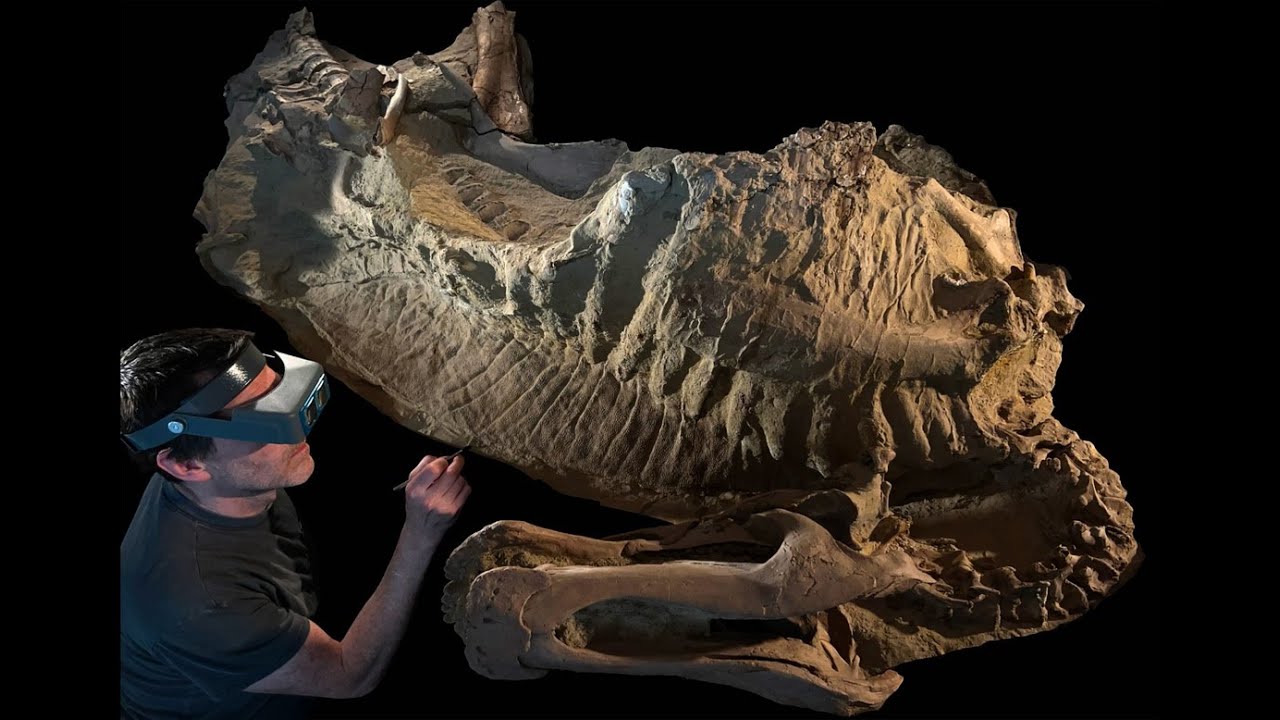Guests: Doug Sharp and Rich Geer
Description: Rich and Doug discussed the differences between dinosaur mummies and fossilized remains, focusing on a recently discovered Hadrosaur (Dakota) that retains organic material and soft tissue. They explored how fossilization processes create casts rather than true mummies. Doug and Rich discussed a new scientific discovery of mummified dinosaur fossils, specifically a Lambiosaurus, found in the Wyoming Badlands near the Hell Creek Formation. The fossils, preserved with remarkable detail through a process called clay templating, revealed features like hooves on the feet and a spike row on the tail, providing the first complete fleshed-out view of a large dinosaur. The discovery was made by University of Chicago scientists, and the fossils were owned by a creationist, which Rich noted as serendipitous.
Dinosaur Fossils and Preservation Discussion
Doug and Rich discussed their shared interest in dinosaurs and the preservation of soft tissue in fossils. Rich explained the difference between fossils and mummies, noting that fossils are mineralized rock formations that preserve the structure of the original tissue, while mummies contain actual organic material. They also touched on the controversy surrounding the age of dinosaur fossils, with Doug questioning the accuracy of carbon dating methods for rocks.
Carbon-14 Challenges Dinosaur Evolution
Doug and Rich discussed the implications of carbon-14 dating on dinosaur remains, emphasizing that its presence would challenge evolutionary timelines. Doug shared that researchers are currently processing samples from the Hell Creek Formation to measure dinosaur soft tissue and DNA, with results expected in early December. They explored the rate at which DNA degrades, noting that it disintegrates over a few hundred to a few thousand years, contrasting with evolutionary estimates of millions of years. Rich questioned why contamination is rarely claimed for dating methods that support long ages but is quickly invoked when results contradict expectations, criticizing the lack of scientific rigor in such defenses.
